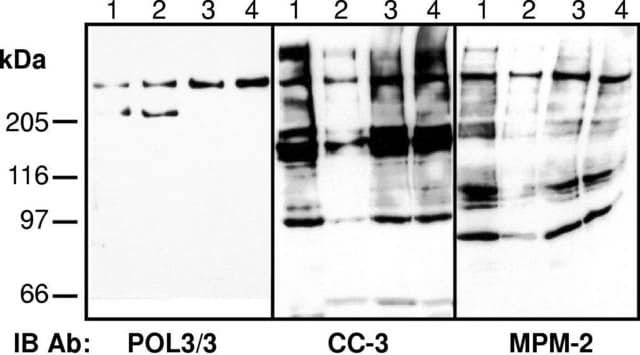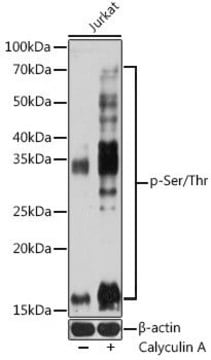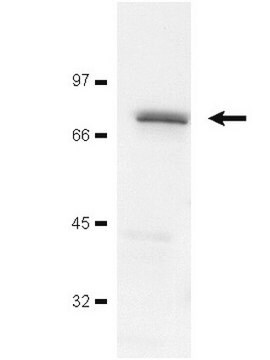05-368MG
Anti-phospho-Ser/Thr-Pro MPM-2 Antibody
clone MPM-2, Upstate®, from mouse
About This Item
Productos recomendados
biological source
mouse
Quality Level
antibody form
purified immunoglobulin
antibody product type
primary antibodies
clone
MPM-2, monoclonal
species reactivity
vertebrates
manufacturer/tradename
Upstate®
technique(s)
ELISA: suitable
immunohistochemistry: suitable
immunoprecipitation (IP): suitable
western blot: suitable
isotype
IgG1
shipped in
wet ice
Gene Information
human ... FOXM1(2305)
General description
Specificity
Immunogen
Application
Epigenetics & Nuclear Function
Cell Cycle, DNA Replication & Repair
Quality
Target description
Physical form
Storage and Stability
Analysis Note
Colcemid-treated HeLa (lane 2) cell lysates, A431 mitotic cells fixed with 3.7% paraformaldehyde
Legal Information
Disclaimer
¿No encuentra el producto adecuado?
Pruebe nuestro Herramienta de selección de productos.
Storage Class
12 - Non Combustible Liquids
wgk_germany
WGK 2
flash_point_f
Not applicable
flash_point_c
Not applicable
Certificados de análisis (COA)
Busque Certificados de análisis (COA) introduciendo el número de lote del producto. Los números de lote se encuentran en la etiqueta del producto después de las palabras «Lot» o «Batch»
¿Ya tiene este producto?
Encuentre la documentación para los productos que ha comprado recientemente en la Biblioteca de documentos.
Nuestro equipo de científicos tiene experiencia en todas las áreas de investigación: Ciencias de la vida, Ciencia de los materiales, Síntesis química, Cromatografía, Analítica y muchas otras.
Póngase en contacto con el Servicio técnico








